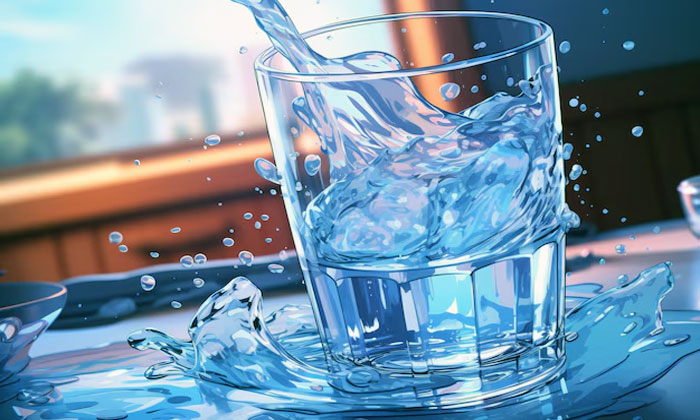
Water is essential for life, making up about 60% of the human body. Despite its critical role in maintaining health, many people overlook the simple yet powerful benefits of staying properly hydrated. Adequate water intake is a cornerstone of good health, supporting a wide range of bodily functions from regulating body temperature to aiding in digestion. In this article, we’ll explore why drinking enough water is so important and how it contributes to overall well-being.
1. Why Hydration Matters for Health
Water is more than just a thirst quencher. It plays a central role in almost every bodily function. It helps transport nutrients to cells, removes waste products through urine, cushions joints, and regulates body temperature. Since the body loses water throughout the day, particularly through sweat, breath, and urination, it’s vital to replenish lost fluids.
Proper hydration is directly tied to our body’s ability to function optimally. When the body doesn’t get enough water, it can lead to dehydration, which can have a profound impact on both physical and mental health. Dehydration can affect your energy levels, concentration, and even your mood.
2. The Physical Benefits of Drinking Water
There are numerous ways in which staying hydrated contributes to your physical well-being. Let’s dive into some key benefits:
- Supports Digestion and Nutrient Absorption
Water is essential for digesting food and absorbing nutrients effectively. It helps break down food so that the body can absorb the nutrients it needs. Inadequate hydration can lead to constipation and digestive discomfort. - Regulates Body Temperature
When you’re properly hydrated, your body can sweat and release heat more efficiently, helping to regulate your internal temperature. This is especially important during physical activity or in hot climates. - Boosts Physical Performance
Whether you’re running a marathon or simply going for a walk, staying hydrated helps maintain your energy and stamina. Dehydration can lead to fatigue, reduced strength, and increased muscle cramping during physical exertion. - Supports Healthy Skin
Drinking plenty of water helps keep your skin hydrated and may reduce the appearance of wrinkles and dryness. Hydrated skin looks more plump, smooth, and youthful.
3. The Mental and Cognitive Benefits
Your brain is about 75% water, which is why staying hydrated is crucial for cognitive function. Dehydration can have a significant impact on your brain’s ability to think, concentrate, and retain information.
- Improved Concentration
Even mild dehydration can impair your ability to focus. Research has shown that students and workers alike perform better when they are adequately hydrated. - Mood Regulation
Hydration plays a role in regulating mood. Studies have linked dehydration to feelings of irritability, anxiety, and even depression. Drinking enough water helps maintain a balanced mood and reduces stress levels. - Mental Clarity and Memory
Drinking enough water can help improve mental clarity and short-term memory. Dehydration has been shown to cause cognitive impairments, affecting everything from decision-making to memory retention.
4. How Much Water Should You Drink?
The amount of water needed varies from person to person and depends on factors such as age, gender, activity level, and climate. The commonly recommended guideline is to drink eight 8-ounce glasses of water a day, also known as the “8×8 rule.” This is easy to remember, but it may not apply to everyone. For some people, more water may be required, especially if they engage in intense physical activity or live in hot climates.
A more tailored approach is to listen to your body and drink when you’re thirsty. Also, consider that other fluids and foods, such as fruits and vegetables, contribute to hydration.
Also read other lifestyle articles on Destyless:
5. Signs You May Be Dehydrated
While thirst is the most obvious sign that you need water, there are several other indicators of dehydration to be aware of:
- Dark Yellow Urine
Urine that is darker than usual is a sign that your body is conserving water. If your urine is consistently dark, it’s time to drink more water. - Dry Mouth and Skin
If your mouth feels dry or your skin feels less elastic than usual, this could be a sign that your body needs more fluids. - Fatigue and Dizziness
When you’re dehydrated, you may feel more tired than usual, or even experience dizziness or lightheadedness. - Headaches
Dehydration can cause headaches and migraines. If you find yourself with a headache, drinking a glass of water may provide relief.
6. Staying Hydrated in Daily Life
To ensure you’re drinking enough water each day, try the following strategies:
- Carry a Water Bottle
Keep a water bottle with you at all times. Having easy access to water will remind you to drink throughout the day. - Drink Before You Feel Thirsty
Don’t wait for thirst to strike. By the time you feel thirsty, you may already be slightly dehydrated. Aim to sip water throughout the day, even when you’re not thirsty. - Add Flavor
If you find plain water unappealing, try infusing it with slices of fruits like lemon, lime, or cucumber for added flavor. - Track Your Intake
Using an app or keeping a mental note of how much you’re drinking can help you stay on track to meet your hydration goals.
Conclusion
Drinking enough water is a simple but powerful way to support your general health. From improving physical performance to enhancing cognitive function and boosting your skin’s appearance, staying hydrated has a wide range of benefits. By making hydration a priority, you can maintain your energy, mood, and overall well-being. So, the next time you feel thirsty, reach for that glass of water — your body will thank you!






